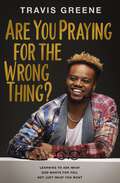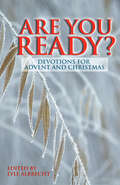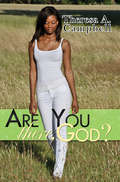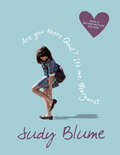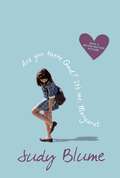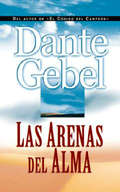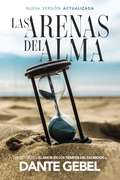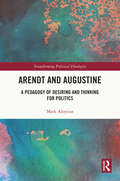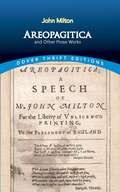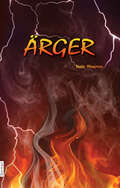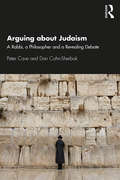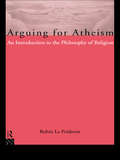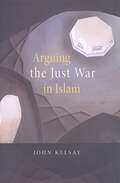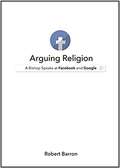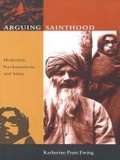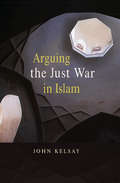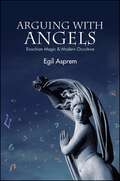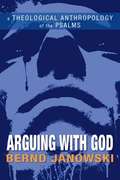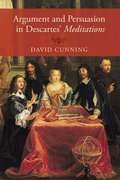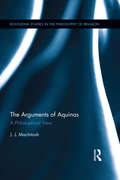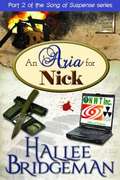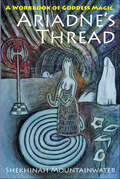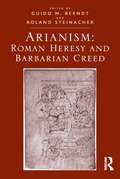- Table View
- List View
Are You Praying for the Wrong Thing?: Learning to Ask What God Wants for You, Not Just What You Want
by Travis GreeneThe Bible tells us to pray continually and without ceasing, but what happens when we're waiting for God but discover He's waiting for us? In his first book, pastor and recording artist Travis Greene guides the reader to apply Biblical truths for a fulfilled life.Praying and waiting for God to answer can be confusing. When something--or everything--feels stuck because God doesn't seem to be answering our prayers, what next? Pastor and Grammy–nominated recording artist Travis Greene issues a challenge and asks us to examine our prayers--Are we praying for the right thing? Are we planning and preparing for what we've asked for? Are we praying for our will to grow closer to His? Or do we sometimes treat him like a genie in a bottle? Using Biblical examples, Travis invites readers to reconsider our prayers andnavigate beyond feeling trapped to thriving in God&’s purposes;learn to use what's left instead of focusing on what was lost;be willing to forgive, wait, and work as God allows; andbelieve in God's miracles while being a faithful steward of what He has already provided.Sometimes what happens next depends on the choices made right now. And sometimes God has something else in mind for us--something we might never have imagined, or in a way we might not have imagined it! It's possible to press forward into a life filled with joy and expectation for the future! Like the widow who used the oil she had at hand, by using what God has already supplied, Travis encourages the readers that they may be closer to enjoying God's promises than they realize. Management can be a magnet for miracles.
Are You Ready?: Devotions for Advent and Christmas
by Lyle AlbrechtWho was John the Baptist?Discover who John the Baptist was and the hopeful message he preached to God’s people through these 37 short devotions for the Advent and Christmas season. Each easy-to-read devotion includes a Bible passage, a practical life application, and a short prayer.Use these devotions from December 1 through January 6 to prepare your heart for the celebration of Jesus’ birth!
Are You There, God?
by Theresa A. CampbellAs a young woman in rural Jamaica, Dupree struggles to maintain a home for herself and the ailing aunt who is raising her after she was abandoned by her teenage mother. The effort of life with no electricity, running water, or money often leaves Dupree battered and bruised, but she refuses to be defeated. She might have been forced to grow up too fast, but she will not succumb to the wiles of the devil, choosing instead to rely on the power of Almighty God to help her through.After a brutal attack that takes her to hell and back, Dupree must reach for her inner strength once again to survive. Her journey for a better life leads her to Kingston, a city some people refer to as "Jamaica's Sodom and Gomorrah." There, she sees and experiences things beyond her imagination. Dupree seeks comfort in the arms of her Prince Charming--but he might just be a wolf in sheep's clothing. Caught up in a web of lies and betrayal, Dupree fights to save her life. In pure desperation, she seeks an answer to her question, "Are you there, God?" Will she be around to hear His response, or will it be too late?
Are You There God? It's Me, Margaret: Special Edition
by Judy BlumeMargaret Simon, almost twelve, has just moved from New York City to the suburbs, and she's anxious to fit in with her new friends. When she's asked to join a secret club she jumps at the chance. But when the girls start talking about boys, bras, and getting their first periods, Margaret starts to wonder if she's normal. There are some things about growing up that are hard for her to talk about, even with her friends. Lucky for Margaret, she's got someone else to confide in . . . someone who always listens.
Are You There God? It's Me, Margaret.
by Judy BlumeNow a major motion picture starring Rachel McAdams and Kathy Bates! A Time Best YA Book of All Time Margaret shares her secrets and her spirituality in this iconic Judy Blume novel, beloved by millions.Margaret Simon, almost twelve, likes long hair, tuna fish, the smell of rain, and things that are pink. She&’s just moved from New York City to Farbook, New Jersey, and is anxious to fit in with her new friends—Nancy, Gretchen, and Janie. When they form a secret club to talk about private subjects like boys, bras, and getting their first periods, Margaret is happy to belong. But none of them can believe Margaret doesn&’t have religion, and that she isn&’t going to the Y or the Jewish Community Center. What they don&’t know is Margaret has her own very special relationship with God. She can talk to God about everything—family, friends, even Moose Freed, her secret crush. Margaret is funny and real. As you read her story, you&’ll know why this book has been the favorite of millions of readers. It&’s as if Margaret is talking right to you, sharing her secrets with a friend.
Las Arenas del Alma
by Dante GebelSPANISH EDITION. This work takes the hollow places of the soul and, surprisingly, leads the reader toward a celestial ovation.
Las arenas del alma
by Dante Gebel«Yo sé que estás en crisis, me lo dicen tus ojos». Con estas sencillas palabras pertenecientes a una vieja melodía, el autor nos lleva a recorrer el desierto de las pruebas a través del capítulo 22 del libro de Génesis.La odisea del patriarca de la fe reflejada de una manera emocionante, y por momentos, humorística, hacen que este libro sea cautivador para cualquier persona. Está dedicado a todos aquellos que han transitado por los desiertos personales, ministeriales o espirituales, preguntándose en muchas ocasiones, en que fallaron para encontrarse caminando en medio de un páramo desolador.«Es increíble lo que puede lograr un día de caminata por la arena», afirma Gebel, mientras te conduce a los los detalles ocultos en la fascinate historia de Abraham, mezclados con las experiencias personales y las vivencias de aquellos que han obedecido a Dios, a pesar de si mismos. «No hay manera que esta historia te suene espiritual», menciona el autor, al tratar de explicar racionalmente una crisis que golpea en lo mas profundo del corazón y agrega «seguramente, pensarás que el cielo no debería estar así». Esta obra recorre los huecos del alma, y logra conducir al lector hacia una ovación celestial.Las arenas del alma logrará que dibujes una sonrisa, y te consideres amigo de Dios aún en medio de la crisis.
Arendt and Augustine: A Pedagogy of Desiring and Thinking for Politics (Transforming Political Theologies)
by Mark AloysiusThis book addresses a lacuna in scholarship concerning Hannah Arendt’s Augustinian heritage that has predominantly focused on her early work. It de-canonises the sources that political theology has appealed to by shifting the interpretive focus to her mature treatment in The Life of the Mind. Arendt’s initial criticism of Augustinian desiring is that it generates 'worldlessness'. In her later works, Arendt develops a more nuanced reading of the movements of thinking, desiring, and loving in her engagement with Augustine. This study attends to these movements and inspects the spatio-temporal framework which structure Arendt’s conception of the political. The author assesses the claim that Arendt’s conception of the political is drawn from a pedagogy of desiring and thinking from Augustine severed from his mystagogy. Although respecting the method of political theory, the author contends that Arendt’s severing of Augustinian pedagogy from mystagogy brings her to an insurmountable aporia. Instead, the author embeds these pedagogical practices within Augustine’s theology and suggests how that aporia might be overcome and used to develop a mystagogy for contemporary political life. The book will be of particular interest to scholars of political theology, as well as political theory, and political philosophy.
Areopagitica and Other Prose Works
by John Milton C. E. VaughanAn uncompromising defender of liberty as well as a sublime poet, John Milton published the "Areopagitica" in 1644, at the height of the English Civil War. The impetus arose from Parliament's Licensing Order, which censored all printed materials and ultimately led to arrests, book burnings, and other authoritarian abuses. Milton's polemic, strengthened by biblical and classical allusions, remains enduringly significant and ranks among the world's most eloquent defenses of the right to free speech.In addition to the "Areopagitica," this collection of Milton's most significant prose works includes "Of Education," a tract on educational reform; "Meditation Upon Divine Justice and The Death of King Charles the First," a rationale for the overthrow of the monarchy; "The Doctrine and Disciple of Divorce," in which the author urges the enactment of a virtually unheard-of reform allowing divorce for incompatibility and the right of remarriage; and "Autobiographical Extracts," featuring highlights from Milton's memoirs.
Ärger
by Dada BhagwanNormalerweise wird man ärgerlich und wütend, wenn die Dinge nicht so laufen, wie man es möchte, oder wenn der andere einen nicht versteht oder wenn es unterschiedliche Sichtweisen gibt. Wir werden oft wütend, wenn man uns beschuldigt, im Unrecht zu sein, wenn wir glauben, im Recht zu sein. Aufgrund unserer Wahrnehmung glauben wir, dass wir im Recht sind und der andere glaubt, dass er im Recht ist. Oft werden wir wütend, weil wir keine Idee haben, was wir als nächstes tun sollen, weil wir keine Voraussicht oder Eingebung bekommen.Wir beschädigen die Beziehung zu den Menschen, die uns am meisten lieben. Wir wollen unsere Kindern in allem unterstützen, ihnen Geborgenheit und Sicherheit geben, aber unser Ärger und unsere Wut lässt die Kinder in ihrem eigenen Zuhause Angst haben.Wie geht man mit wütenden Menschen um? Wenn eine Maschine zu heiß wird, muss du sie für eine Weile stehen lassen und in kurzer Zeit wird sie abgekühlt sein. Aber wenn du sie nicht in Ruhe lässt, wirst du dich verbreen.Lese weiter, um Lösungen für deine Ärger/Wut-Beziehungsprobleme zu bekommen.
Arguing about Judaism: A Rabbi, a Philosopher and a Revealing Debate
by Peter Cave Dan Cohn-SherbokArguing about Judaism differs from other introductions to Judaism. It is unique, not solely in its engaging dialogues between a Reform rabbi and a humanist, atheist philosopher, but also in its presentation of and challenges to the fundamental religious beliefs of the Jewish heritage and their relevance to today’s Jewish community. The dialogues contain both Jewish narratives and philosophical responses, with topics ranging from the nature of God to controversies over sexual relations, animal welfare and the environment — from antisemitism to the state of Israel and Zionism. Although the rabbi and philosopher argue strongly, clearly enjoying the cut and thrust of debate, they do so with sensitivity, charm and respect, revealing the rich intricacies of the Jewish religion and contemporary Jewish life. While essential reading for those studying Judaism and Jewish history, the book aims to stimulate debate more generally amongst Jews and non-Jews, the religious and the atheist — all those with a general interest in religion and philosophy.
Arguing for Atheism: An Introduction to the Philosophy of Religion
by Robin Le PoidevinFirst Published in 2004. Routledge is an imprint of Taylor & Francis, an informa company.
Arguing The Just War In Islam
by John Kelsay<P>Jihad, with its many terrifying associations, is a term widely used today, though its meaning is poorly grasped. Few people understand the circumstances requiring a jihad, or "holy" war, or how Islamic militants justify their violent actions within the framework of the religious tradition of Islam. <P>How Islam, with more than one billion followers, interprets jihad and establishes its precepts has become a critical issue for both the Muslim and the non-Muslim world.<P> John Kelsay's timely and important work focuses on jihad of the sword in Islamic thought, history, and culture.<P> Making use of original sources, Kelsay delves into the tradition of shari'a--Islamic jurisprudence and reasoning--and shows how it defines jihad as the Islamic analogue of the Western "just" war. <P>He traces the arguments of thinkers over the centuries who have debated the legitimacy of war through appeals to shari'a reasoning. <P>He brings us up to the present and demonstrates how contemporary Muslims across the political spectrum continue this quest for a realistic ethics of war within the Islamic tradition.<P> Arguing the Just War in Islam provides a systematic account of how Islam's central texts interpret jihad, guiding us through the historical precedents and Quranic sources upon which today's claims to doctrinal truth and legitimate authority are made.<P>In illuminating the broad spectrum of Islam's moral considerations of the just war, Kelsay helps Muslims and non-Muslims alike make sense of the possibilities for future war and peace.
Arguing Religion: A Bishop Speaks at Facebook and Google
by Robert BarronEvery day, millions of people fight about religion. Whether with friends, family, or on social media, we expend lots of energy, lots of sharp words, and lots of strong feelings. But very few know how to have a good religious argument a rational, respectful, and productive exchange of differing views. <P><P> Bishop Robert Barron, one of the leading Catholic figures in the world and among the most active on social media, has enjoyed thousands of fruitful religious arguments. In this book based on talks delivered at Facebook and Google, he explains why religion at its best opens up the searching mind, and how we all believer and unbeliever alike can share better discussions about God.
Arguing Sainthood: Modernity, Psychoanalysis, and Islam
by Katherine Pratt EwingIn Arguing Sainthood, Katherine Pratt Ewing examines Sufi religious meanings and practices in Pakistan and their relation to the Westernizing influences of modernity and the shaping of the postcolonial self. Using both anthropological fieldwork and psychoanalytic theory to critically reinterpret theories of subjectivity, Ewing examines the production of identity in the context of a complex social field of conflicting ideologies and interests.Ewing critiques Eurocentric cultural theorists and Orientalist discourse while also taking issue with expatriate postcolonial thinkers Homi Bhabha and Gayatri Spivak. She challenges the notion of a monolithic Islamic modernity in order to explore the lived realities of individuals, particularly those of Pakistani saints and their followers. By examining the continuities between current Sufi practices and earlier popular practices in the Muslim world, Ewing identifies in the Sufi tradition a reflexive, critical consciousness that has usually been associated with the modern subject. Drawing on her training in clinical and theoretical psychoanalysis as well as her anthropological fieldwork in Lahore, Pakistan, Ewing argues for the value of Lacan in anthropology as she provides the basis for retheorizing postcolonial studies.
Arguing the Just War in Islam
by John KelsayJihad, with its many terrifying associations, is a term widely used today, though its meaning is poorly grasped. Few people understand the circumstances requiring a jihad, or "holy" war, or how Islamic militants justify their violent actions within the framework of the religious tradition of Islam. How Islam, with more than one billion followers, interprets jihad and establishes its precepts has become a critical issue for both the Muslim and the non-Muslim world. John Kelsay's timely and important work focuses on jihad of the sword in Islamic thought, history, and culture. Making use of original sources, Kelsay delves into the tradition of shari'a--Islamic jurisprudence and reasoning--and shows how it defines jihad as the Islamic analogue of the Western "just" war. He traces the arguments of thinkers over the centuries who have debated the legitimacy of war through appeals to shari'a reasoning. He brings us up to the present and demonstrates how contemporary Muslims across the political spectrum continue this quest for a realistic ethics of war within the Islamic tradition. Arguing the Just War in Islam provides a systematic account of how Islam's central texts interpret jihad, guiding us through the historical precedents and Qur'anic sources upon which today's claims to doctrinal truth and legitimate authority are made. In illuminating the broad spectrum of Islam's moral considerations of the just war, Kelsay helps Muslims and non-Muslims alike make sense of the possibilities for future war and peace.
Arguing with Angels: Enochian Magic and Modern Occulture (SUNY series in Western Esoteric Traditions)
by Egil AspremThis fascinating work explores John Dee's Enochian magic and the history of its reception. Dee (1527–1608/9), an accomplished natural philosopher and member of Queen Elizabeth I's court, was also an esoteric researcher whose diaries detail years of conversations with angels achieved with the aid of crystal-gazer Edward Kelley. His Enochian magic offers a method for contacting angels and demons based on secrets found in the apocryphal Book of Enoch.Examining this magical system from its Renaissance origins to present day occultism, Egil Asprem shows how the reception of Dee's magic is replete with struggles to construct and negotiate authoritative interpretational frameworks for doing magic. Arguing with Angels offers a novel, nuanced approach to questions about how ritual magic has survived the advent of modernity and demonstrates the ways in which modern culture has recreated magical discourse.
Arguing with God
by Bernd JanowskiThis is the first English translation of Bernd Janowski's incisive anthropological study of the Psalms, originally published in German in 2003 as Konfliktgespräche mit Gott. Eine Anthropologie der Psalmen (Neukirchener). Janowski begins with an introduction to Old Testament anthropology, concentrating on themes of being forsaken by God, enmity, legal difficulties, and sickness. Each chapter defines a problem and considers it in relation to anthropological insights from related fields of study and a thematically relevant example from the Psalms, including how a central aspect of this Psalm is explored in other Old Testament or Ancient Near Eastern texts. Each chapter concludes with an "Anthropological Keyword," which explores especially important words and phrases in the Psalms. The book also includes reflections on reading the Psalms from a New Testament perspective, focusing on themes of transience, praising God, salvation from death, and trust in God. Janowski's study demonstrates how the Psalms have important theological implications and ultimately help us to understand what it means to be human.
Argument And Persuasion In Descartes' Meditations
by David CunningDescartes' Meditations on First Philosophy has proven to be not only one of the canonical texts of Western philosophy, but also the site of a great deal of interpretive activity in scholarship on the history of early modern philosophy over the last two decades. David Cunning's monograph proposes a new interpretation, which is that from beginning to end the reasoning of the Meditations is the first-person reasoning of a thinker who starts from a confused non-Cartesian paradigm and moves slowly and awkwardly toward a grasp of just a few of the central theses of Descartes' system. The meditator of the Meditations is not a full-blown Cartesian at the start or middle or even the end of inquiry, and accordingly the Meditations is riddled with confusions throughout. Cunning argues that Descartes is trying to capture the kind of reasoning that a non-Cartesian would have to engage in to make the relevant epistemic progress, and that the Meditations rhetorically models that reasoning. He proposes that Descartes is reflecting on what happens in philosophical inquiry: we are unclear about something, we roam about using our existing concepts and intuitions, we abandon or revise some of these, and then eventually we come to see a result as clear that we did not see as clear before. Thus Cunning's fundamental insight is that Descartes is a teacher, and the reader a student. With that reading in mind, a significant number of the interpretive problems that arise in the Descartes literature dissolve when we make a distinction between the Cartesian and non-Cartesian elements of the Meditations, and a better understanding of surrounding texts is achieved as well. This important volume will be of great interest to scholars of early modern philosophy.
The Arguments of Aquinas: A Philosophical View (Routledge Studies in the Philosophy of Religion)
by J.J. MacIntoshThe Arguments of Aquinas is intended for readers with philosophical interests, who may not be specialists in medieval philosophy. Some think that a medieval saint must be, as such, wrong, dated, and boring; others feel that a saint, any saint, must be right, relevant, and inspirational. Both groups are likely to misread Aquinas, if indeed they read him at all. The works of great philosophers are products of their times, but that does not lessen their value for us. We profit by reading the works of St Thomas in the same interested but critical way that we read the works of our contemporaries. MacIntosh does not hesitated to compare Thomas's arguments with those of later philosophers as well as with those of his contemporaries and earlier philosophers. He chooses topics from a variety of still interesting problem areas: the existence and attributes of God, including God's foreknowledge and human free will, causality and the origin of the universe, time and necessity, human souls, angels, and the problem of evil. Additionally, the volume looks at his views on honesty and lying, and on human sexuality, on which he is, as ever, philosophically interesting whether or not we accept his conclusions.
An Aria for Nick: Song of Suspense #2
by Hallee BridgemanThe Only Man Who Can Save Her Life Has Been Dead for a Decade. Raised in a loving home, Aria Suarez dreamed of becoming a professional pianist happily married to her high school crush. After the only boy who ever caught her eye dies a hero's death and her wrist is shattered along with her future plans, she turns her brilliant musical mind to nuclear engineering and solving mysteries of science. Abandoned to an abusive father at five, Nick Williams grew up dreaming of escape; of enlisting in the Army and leaving his wretched life behind; of proving himself worthy of the girl he loves. But the crucible of combat offers only the escape of death. A decade later, Aria uncovers a nuclear plot that threatens the heart of our very nation. Sinister forces surround and threaten her when, out of nowhere, the man who reportedly died so many years before returns as if from the grave - intent on protecting her. Has God finally joined them together? Or is Aria doomed to mourn Nick twice?
Ariadne's Thread: A Workbook of Goddess Magic
by Shekhinah MountainwaterAccording to ancient myths, the Goddess Ariadne fared poorly. But is that simply the story the Ancient Greeks wanted retold in their myths? In Ariadne's Thread, Shekhinah Mountainwater argues that reclaiming womanhood and seeking spiritual liberation from patriarchal limitations can change the world--not by flipping the tables to a hierarchical matriarchy but in working toward a peaceful, egalitarian, sustainable society that embraces the traditionally "feminine" values of compassion and nurturing regardless of gender. She looks carefully and with wisdom at the old stories, and skillfully tugs the loose edges of old paradigms. A pioneer of the Goddess feminist movement, Mountainwater employs powerful archetypes and a feminist ethic of care to challenge our assumptions and draw us from the mundane into the mysterious in our own lives. Considered a classic of women's spirituality and goddess worship, Ariadne's Thread offers a magical path of discovery into the mysteries of the Goddess. It includes detailed explorations of the Maiden, Mother, and Crone guiding the cycles of life, as well as rituals to affirm our lunar and natural cycles in the world. As the Library Journal writes, this "well-written book encourages women to find their own spiritual path." Offering her own thread to guide our labyrinth, Mountainwater has illuminated a powerful, poetic, and joyful initiation.
Arianism: Roman Heresy And Barbarian Creed
by Guido M. BerndtThis is the first volume to attempt a comprehensive overview of the evolution of the 'Arian' churches in the Roman world of Late Antiquity and their political importance in the late Roman kingdoms of the 5th-6th centuries, ruled by barbarian warrior elites. Bringing together researchers from the disciplines of theology, history and archaeology, and providing an extensive bibliography, it constitutes a breakthrough in a field largely neglected in historical studies. A polemical term coined by the Orthodox Church (the side that prevailed in the Trinitarian disputes of the 4th century C.E.) for its opponents in theology as well as in ecclesiastical politics, Arianism has often been seen as too complicated to understand outside the group of theological specialists dealing with it and has therefore sometimes been ignored in historical studies. The studies here offer an introduction to the subject, grounded in the historical context, then examine the adoption of Arian Christianity among the Gothic contingents of the Roman army, and its subsequent diffusion in the barbarian kingdoms of the late Roman world.
Ariel Custer (Grace Livingston Hill Series #8)
by Grace Livingston Hill"Ariel Custer! Improbable name! Who could she be, coming alone to a strange city and hiring herself out as a secretary. If she really came from a fine old Virginia family, what was she doing living in a furnished room up north? Judson Granniss was far too handsome and well-bred to be wasted on a little nobody like Ariel Custer! Mrs. Granniss prepared a scheme to protect her son. She would make Judson see that Helena Boggs, from one of the best families in town, was the perfect wife for him. She would make him forget that frail, blue-eyed girl who called herself Ariel Custer! Or so she thought, until she, her son, Helena, and Ariel found themselves on trial for murder..." Through the characters, the author explores Christian themes.
